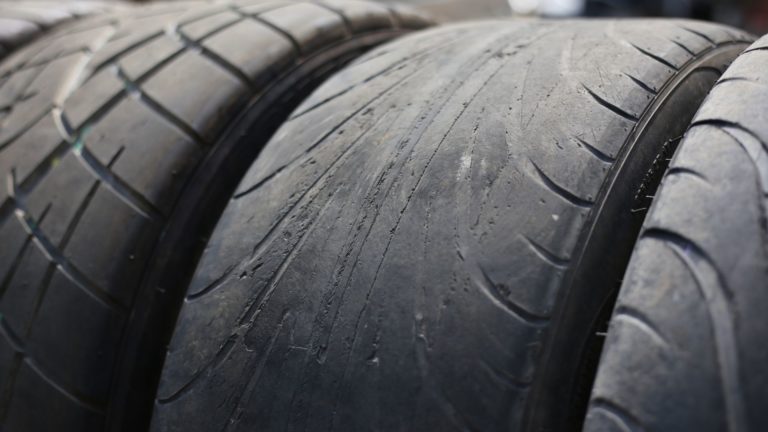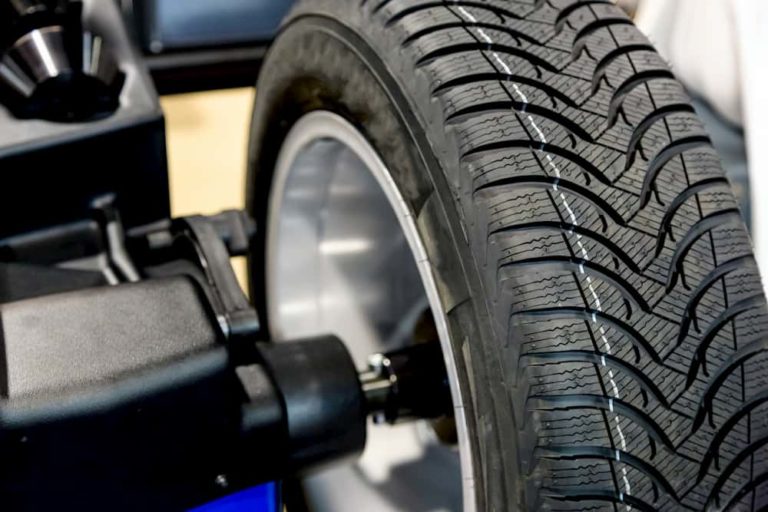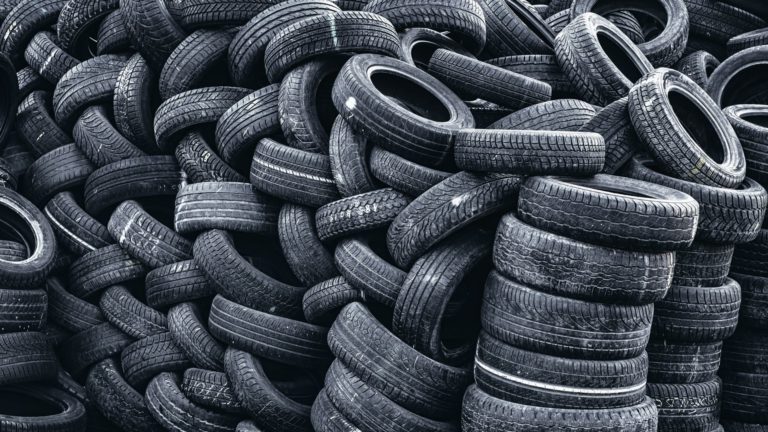The tyres on your vehicle are in constant use. This means they suffer from wear and tear more than any other component on your car. If you’re wondering how you can monitor and take care of the rubber on your wheels, read on to learn more about each component and its recommended maintenance routine.
How Long Do Tyres Last?
The lifetime of these components can be difficult to determine, due to so many different variables. Depending on the brand and quality, they can vary in durability significantly. Typically, tyres will last for anywhere between 20,000 and 40,000 miles.
At the front, they will tend to wear out faster due to braking, accelerating and steering all taking a harsher toll on them.

Signs That Your Tyres Are Damaged
The most common sign of your tyres wearing out is their tread depth. New units have an average tread depth of between 8 and 9mm. This achieves maximum traction on the road surface. Tread depth is also vital to the free movement of water away from your vehicle in wetter conditions. This means you have a higher level of control in bad weather.
The tread will deteriorate over time through wear and tear, which will mean they will lose their high level of performance. Because of this, there is a legal limit of tread depth you can drive on before they are deemed no longer roadworthy.
This limit is 1.6mm. If your tread is lower than this, you could face large fines. It is important to make sure that you have enough tread. Get your tyres replaced by us when they diminish further down than the legal limit.
Potholes, uneven roads, and unexpected debris can make your car’s wheels, axles, and undercarriage prone to damage. The more terrible the state of the street, the higher the danger of getting a damaged tyre. Because of this, often you may find that you have a hole or puncture.
With a puncture, a tyre will gradually lose air pressure (known as a slow puncture), eventually culminating in a flat tyre. This may occur on any route, so be extra cautious.
Sometimes a hole in your tread may not be too much of a problem. However, if the hole is more than 5 or 6mm, we recommend getting your tyres changed immediately. Holes that are 6mm or larger can impact the performance of your vehicle, as the hole may get bigger.
The fundamental cause of a blown out tyre is cracking in the sidewall. A blown out tyre whilst travelling can be a very scary experience that is only made worse when travelling at speed. This issue has a high risk of causing an accident, so it is important to identify it early. Cracks most often appear due to overexerting the tyre. This can be done when your tyres are underinflated, thereby causing stress on the sidewall.
Another reason for tyre issues is the valve stem leaking without you being aware. The valve stem is the piece of the tyre that is unscrewed when you blow up your tyre. Any harm or dirt on this little piece could make air spill out of the tyre until it is totally flat.
To avoid this, you should regularly check that the valve is tightly fixed on each wheel. Air will occasionally leak from the tyre bead, which is the tyre’s edge that rests on the rim.

Ways To Maintain Your Tyres
One of the best ways to extend the life of your tyres is maintaining a consistent wheel alignment. If your alignment is off, it often puts unnecessary strain on one or two wheels compared to the rest. Uneven distribution often leads to wear and tear on one tyre more than another. This leads to more regular trips to the garage. What’s more, maintaining balanced wheel alignment can also improve the fuel efficiency of your vehicle, and provide a smoother ride.
This tip is one that most people are probably aware of already. Safe and responsible driving will always result in longer lasting tyres. Fast acceleration, hard corners and spinning wheels wears down the rubber much quicker than smooth, controlled and slower driving. As a result, if you want to make the most of each tyre, we advise driving as responsibly as possible.
Your tyres are designed to perform best at optimum inflation. Therefore, having over or under inflated tyres will generally result in faster degradation. A wheel which has too much air in it will tend to spin more, which wears down the rubber faster. Alternatively, a flatter tyre will roll and stretch more, also resulting in wear and tear on the rubber.
It’s only natural for some tyres to become more worn down than others. A prime example of this is if your car is rear wheel drive. In this instance, the back tyres will wear down faster than the front. By rotating your wheels every so often, you distribute this wear. This results in a set of tyres that last longer, and can be changed all at once rather than two at a time.
How To Prevent A Flat Tyre
You may be able to help prevent flat or blown out tyres with some preventative maintenance and pre-emptive steps. Run-flat tyres ensure that you can continue to drive for a short period of time, in spite of a flat. These are a good thing to have before you encounter a puncture.
Even if it is sometimes inevitable, if you know you will be travelling near construction zones or roads that are not the safest, try to find alternate routes. Punctures and damage to a tyre can be caused by sharp metals, glass, nails, and even potholes. When you hit a pothole, your tyres, wheels, and other automotive parts may be damaged.

Contact Monnington Motors For Quality Tyres
If you have identified that you need new tyres, call our team of highly skilled mechanics so we can book your vehicle in for tyre replacements. If you’re looking for a new set of rubber, get in touch with Monnington Motors today. We’re stocked with the best quality products and fully trained technicians to ensure you get the best tyres available. Give us a call today to find out more.



